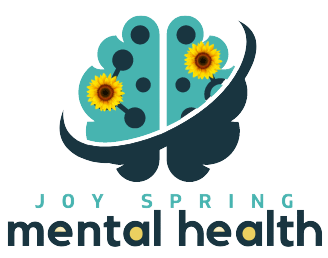When your anxiety is focused on fears of passing on your mental health challenges to your children, it is easy to slide into a pattern of fear-based decision-making, which often leads to avoidance. This is especially common for people who have experienced the trauma of mental illness symptoms in themselves or their loved ones or have experienced secondary trauma from the consequences of untreated mental illness in themselves or their loved ones.
There is a scene from the TV show ER where the character Abby (played by Maura Tierney) confesses to her mom (played by Sally Fields) that she had an abortion rather than risk becoming like her mom or having to take care of another person like her mom who has bipolar disorder. I kind of love this scene, and I kind of hate it. I love it because it is honest, it is real, and the thoughts and emotions conveyed in this scene are so common for people who have experienced mental illness in themselves or their loved ones. I kind of hate it because, beyond the drama of what makes good TV, this episode doesn’t include the facts and treatments that help clients who carry this fear. It is one thing to say, “Be brave, you deserve the life you want,” and quite another to empower someone with education and treatment and sit with them as they learn to move beyond fear-based decisions. Facts and treatments are not so dramatic, but surely the story of recovery and hope is worth sharing.
Sally Fields won an Emmy for her portrayal of Maggie, Abby’s mom with bipolar disorder. She does a great job of acting out how extreme the symptoms of mania and depression can be for some clients who have untreated bipolar 1 disorder. For those of us who work in mental health, this scene breaks our hearts and makes us want to get out a whiteboard and annotate the script. Here are a few things that everyone with trauma or mental illness in their personal or family history should know:
The goal of mental health treatment is for you to be able to experience the full range of human feelings and emotions without being overwhelmed, so that you can work, play, eat, sleep, and maintain your relationships in whatever way is meaningful to you. Options of treatment include regularly noticing your thoughts, feelings, and bodily sensations, psychotherapy, medication, movement, nutrition, and social interaction. The nice thing about mental health treatment is that the tools you use on your path to recovery can be as unique as you are. We often think of mental healthcare as something we have to do if we have problems or failures. In reality, mental healthcare is something everyone needs and is a generosity that you give to yourself and the people around you.
Regardless of where you are in your parenting journey, if you have ever had the thought that your mental health symptoms, trauma, or family history make you feel less able to have or enjoy the life you want, it may be time to consider working with a mental health professional. Safe and effective treatments are available to help you on your path to recovery.
Grimm O, Kranz TM, Reif A. Genetics of ADHD: What Should the Clinician Know? Curr Psychiatry Rep. 2020 Feb 27;22(4):18. doi: 10.1007/s11920-020-1141-x. PMID: 32108282; PMCID: PMC7046577.


